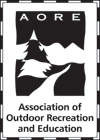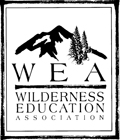Abstract
The objectives of this study were a) to develop a youth Affinity for Nature Scale that can be used to document the affective outcomes of children participating in nature based programs; b) to review three relevant strains of literature informing the development of the scale: emotion theory, child development, and affinity for nature; and c) to review the importance of this scale’s utility in terms of the current state of children’s relationship with the natural world. The study outcomes include a field friendly instrument based on the emotion literature providing outdoor educators a reliable method to assess program outcomes aimed at connecting children to nature. A sample of 309 campers was recruited for the initial scale development. Content criterion and discriminant validity were assessed. The results showed there was adequate internal consistency and reliability for a 10 items a shorter 5 item scale. In addition, the paper gives a rationale for the utility of this scale based on current trends of human and environmental health. In response to the growing concerns of childhood obesity, emotional health, and decreases in environmental literacy and sensitivity camps, nature centers, park and recreation organizations, and public land agencies are increasingly tailoring their program offerings to provide opportunities for children to connect with nature. These educators and program planners need tools that are easy to administer in the field to evaluate affective outcomes for the youth in their programs.
Recommended Citation
Eastep, B.,
Cachelin, A.,
& Sibthorp, J.
(2011).
Affinity for Nature in Outdoor Programming: Theoretical Foundations, Scale Development, and Importance.
Journal of Outdoor Recreation, Education, and Leadership, 3(3).
https://doi.org/10.7768/1948-5123.1089


